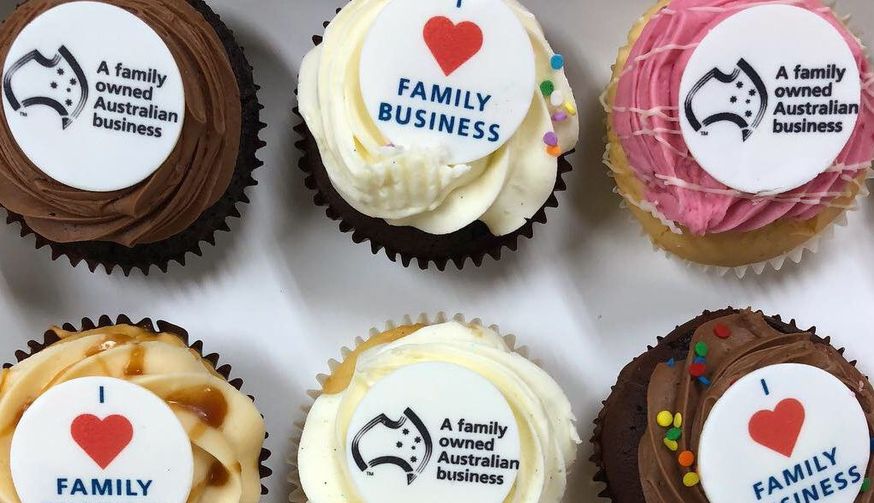Budget 2020 – What’s in it for SMEs
Budget 2020
Key message – Economic Recovery Plan for Australia will create jobs, rebuild our economy and secure Australia’s future.
The economy is forecast to grow by 414 per cent next calendar year and unemployment is expected to fall to 612 per cent by the June quarter 2022. Without economic support the unemployment rate would have remained above 12 per cent for the next two years
What’s in it for SMEs
Loss carry-back for businesses
- companies with turnover up to $5 billion to offset losses against previous profits on which tax has been paid, to generate a refund.
- Losses incurred up to 2021‑22 can be carried back against profits made in or after 2018‑19. Eligible companies may elect to receive a tax refund when they lodge their 2020‑21 and 2021‑22 tax returns.
Temporary full expensing
- 6 October 2020 until 30 June 2022, businesses with turnover up to $5 billion will be able to deduct the full cost of eligible depreciable assets of any value in the year they are installed.
- The cost of improvements to existing eligible depreciable assets made during this period can also be fully deducted.
Research & Development incentives
- From July 2021 small companies (those with aggregated annual turnover of less than $20 million) will see the refundable R&D tax offset set at 18.5 percentage points above the claimant’s company tax rate.
JobMaker Hiring Credit
- Businesses will receive the JobMaker hiring credit of $200 per week for every worker aged from 16 up to 30 and $100 a week if they hire an eligible young person aged 30 to 35 years, payable for the next 12 months for new hires who work at least 20 hours per week.
Victoria’s business support grants
- Victorian government’s business support grants for small and medium business as announced on 13 September 2020 non-assessable, non-exempt (NANE) income for tax purposes.
- The Commonwealth will extend this arrangement to all states and territories on an application basis, with eligibility to be restricted to future grants program announcements for small and medium businesses facing similar circumstances to Victorian businesses.
- limited to grants announced on or after 13 September 2020 and for payments made between 13 September 2020 and 30 June 2021.
Mental health aid
- $7.0 million in 2020-21 to support the mental health and financial wellbeing of small businesses impacted by COVID-19, including:
- $4.3 million to provide free, accessible and tailored support for small business owners by expanding Beyond Blue’s NewAccess program in partnership with the Australian Small Business and Family Enterprise Ombudsman
- $2.2 million to expand a free accredited professional development program that builds the mental health literacy of trusted business advisers so that they can better support small business owners in times of distress, delivered through Deakin University.
Tax concessions, including changes to FBT
- Businesses with an aggregated annual turnover between $10 million and $50 million will have access to up to 10 small business tax concessions as part of the 2020–21 budget.
- From 1 July 2020, eligible businesses will be able to immediately deduct certain start-up expenses and certain prepaid expenditure
- From 1 April 2021, eligible businesses will be exempt from the 47 per cent fringe benefits tax on car parking and multiple work-related portable electronic devices, such as phones or laptops, provided to employees
- From 1 July 2021, eligible businesses will be able to access;
- the simplified trading stock rules, remit pay-as-you-go (PAYG) instalments based on GDP adjusted notional tax
- and settle excise duty and excise-equivalent customs duty monthly on eligible goods.
- Eligible businesses will also have a two-year amendment period apply to income tax assessments for income years starting from 1 July 2021.
- the Commissioner of Taxation’s power to create a simplified accounting method determination for GST purposes will be expanded to apply to businesses below the $50 million aggregated annual turnover threshold
Help to employ 100,000 new apprentices
· $1.2 billion to help Australian businesses employ 100,000 new apprentices or trainees.
· Available to employers Australia-wide who engage an Australian apprentice or trainee from 5 October 2020 until the 100,000 cap is reached.
· Employers will be eligible for 50 per cent of the wages for a new or recommencing apprentice or trainee for the period up to 30 September 2021, up to $7,000 per quarter
Infrastructure spend
- $7.5 billion new investment towards transport infrastructure projects
- Spread across all states and territories, including
- $560 million for the Singleton Bypass on the New England Highway in New South Wales;
- $528 million for the Shepparton and Warrnambool Rail Line Upgrades in Victoria;
- $750 million for Stage 1 of the Coomera Connector (Coomera to Nerang) in Queensland;
- $88 million for the Reid Highway Interchange with West Swan Road in Western Australia;
- $200 million for the Hahndorf Township Improvements and Access Upgrade in South Australia;
- $150 million for the Midway Point Causeway (including McGees Bridge) and Sorell Causeway as part of the Hobart to Sorell Roads of Strategic Importance corridor in Tasmania;
- $120 million to upgrade the Carpentaria Highway in the Northern Territory; and $88 million for the Molonglo River Bridge in the ACT.
Modern Manufacturing Strategy
- $1.5 billion in funding over next four years
- Mainly $1.3 billion Modern Manufacturing Initiative, which will support projects within six National Manufacturing Priorities, including;
- resources technology and critical minerals processing;
- food and beverage;
- medical products;
- recycling and clean energy;
- defence; and,
- space.
Digital plan
$800 million to get businesses towards adopting digital technologies to grow their business
- $419.9 million towards the full implementation of the Modernising Business Registers (MBR) program, allowing businesses to quickly view, update and maintain their business registry data in one location
- $256.6 million will go towards developing a digital identity system to enable more secure and convenient engagement with government services
- $28.5 million will be invested in supporting the rollout of the Consumer Data Right to the banking and energy sectors.
- $22.2 million will be spent on supporting small-business operators take advantage of digital technologies through an expansion of the Australian Small Business Advisory Service – Digital Solutions program, a Digital Readiness Assessment tool and a Digital Directors training package.
For Women
As part of its $50 million Women@Work initiative, the Government is expanding the existing Women’s Leadership and Development Program (WLDP) to $47.9 million. As part of this, the Government is graduating two key, proven programs to “WLDP partner” status:
- Expanding the Master Builders Australia’s Women Building Australia program to support more women into the highly male-dominated building and construction industry; and
- Expanding the innovative Enterprising Girls program to give girls and young women across Australia the skills and opportunities to start their own businesses in the digital economy.
An additional $35.9 million will be invested in the existing Boosting Female Founders Initiative to support up to 282 additional start-ups and 4,300 women entrepreneurs. As part of this ongoing support, we will link Female Founders up with expert mentoring and advice for women entrepreneurs. As a key measure in the 2018 WESS, this initiative is already on track to support over 100 businesses to build their potential.
SME guarantee scheme
The Coronavirus Small and Medium Enterprises (SME) Guarantee Scheme is supporting up to $40 billion of lending to SMEs (including sole traders and not-for-profits) by guaranteeing 50 per cent of new loans issued by participating lenders to SMEs.
- It commenced on 23 March 2020 and closed for new loans on 30 September 2020. The Scheme has now been extended and enhanced to support businesses in recovery and to enable continued support for SMEs facing the ongoing impacts of the Coronavirus.
- Phase 2 of the Scheme commenced on 1 October 2020. Phase 2 includes targeted amendments to the Scheme’s parameters to meet the evolving needs of SMEs.
- Phase 2 of the Scheme will continue to support lenders’ ability to provide credit and ensure that SMEs benefit through low interest rates.
- will be available for loans made by participating lenders until 30 June 2021
For more information including on how to apply for a loan go to: https://treasury.gov.au/coronavirus/sme-guarantee-scheme
Financial Distress
A safety net will apply to lessen the threat of actions that could unnecessarily push your business to being wound up or forced into insolvency or bankruptcy during this time. These changes will enable more Australian small businesses to quickly restructure and to survive the economic impact of COVID-19.
For more information go to: https://budget.gov.au/2020-21/content/factsheets/download/insolvency-reforms-factsheet.pdf
– Sara Pantaleo, Affari SP Founder
Budget 2020 – What’s in it for SMEs Read More »





